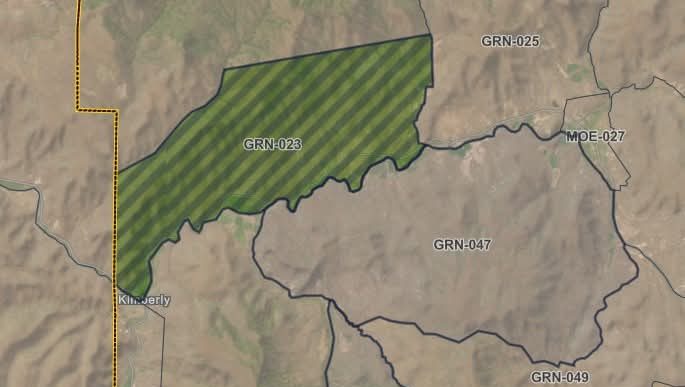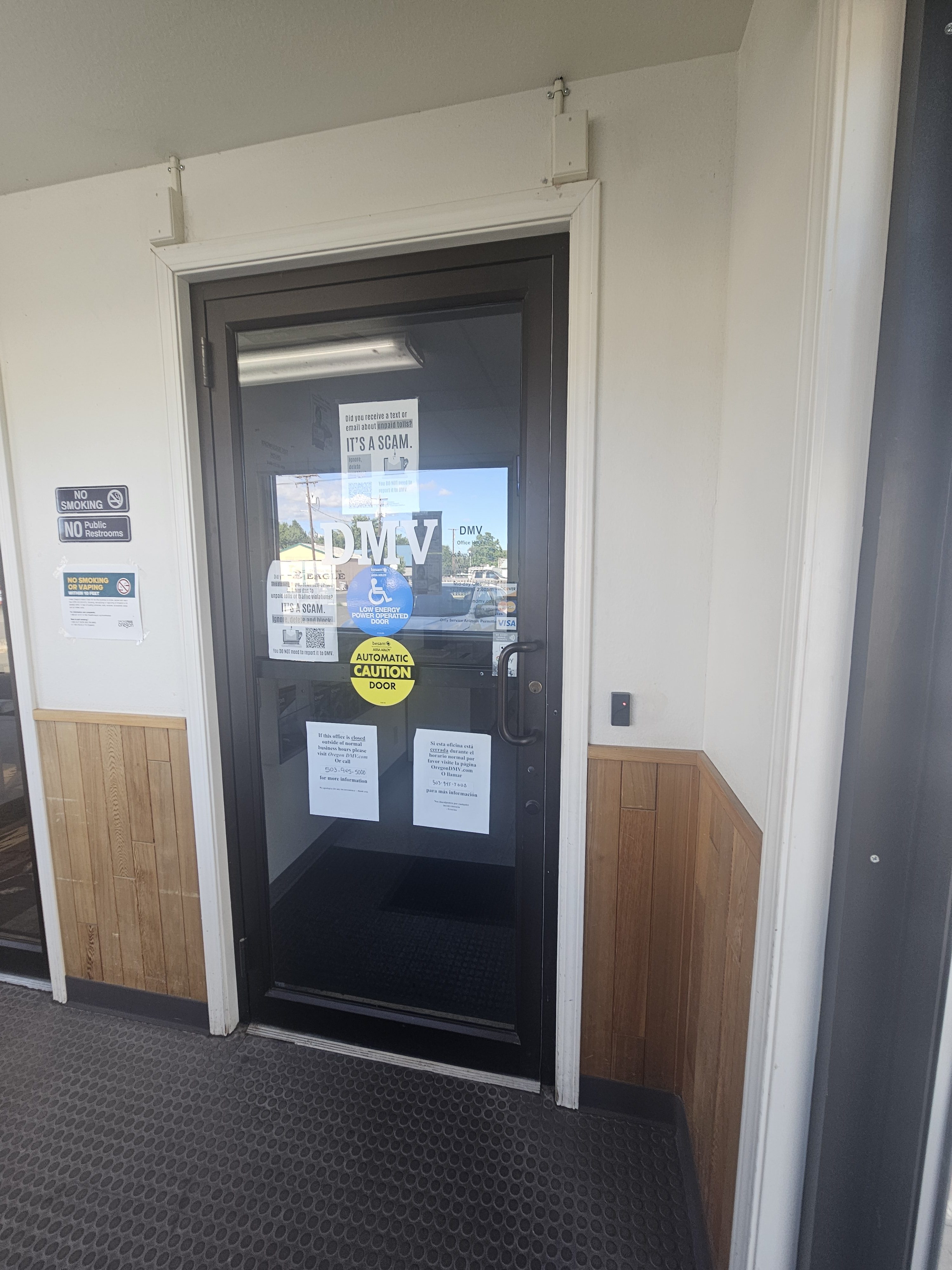The song keeper
Published 4:00 pm Saturday, March 8, 2014
Adam Miller keeps 5,000 songs in his head.
Trending
They don’t just rattle around in there, though. He pulls them out and sings them — accompanying himself on autoharp or guitar — for anyone who wants to listen.
He sings at libraries, in schools, at festivals, for friends. But he doesn’t just sing, he tells the stories behind the songs and the history behind the stories.
He does upwards of 300 shows a year, mostly east of the Mississippi, “where maybe there’s more connection to tradition,” he said.
Trending
Miller has played and sung and told stories to 1.5 million children during the past 20 years, and who knows how many adults.
He’ll do a rare Oregon performance at Tsunami Books next Sunday before taking off on his next tour in April, which will include 59 shows in 45 days.
That’s on the long end of the tours he likes to do, because it’s a grueling business.
Doc Watson, a well-known guitarist, songwriter and folk singer who also spent a lot of time touring, “once said that four weeks is good, six is great, and seven or eight will kill you,” Miller said.
“He was right — I like to have a month each side of a big tour to rest from the last one, keep up the business end and get ready for the next.”
Audiences can be as large as thousands or as small as a dozen. By now, Miller figures he’s played in more than 2,000 libraries throughout the country.
Adam Miller is a keeper of folk music, dedicated to passing it down as many have passed it down, through all its evolutions, before him.
“Each person who does this is on a continuum and gets to keep these songs alive for a while,” he said. “At this stage of my life, most of the people who inspired me are dead. It’s an ancient trade.”
Miller knows songs as old as “Froggy Went a-Courtin’,?” which dates to the 16th century. He knows songs as recent as the protest ballads of the 1960s anti-war and pro-worker movements.
“The first thing I remember from childhood is Pete Seeger records,” Miller said.
“My parents had them, my grandparents had them. I listened to them as far back as I can remember.”
When he was 11, Miller, now 53, attended a Sam Hinton concert, which means the venerable folk singer, marine biologist and harmonica player, who died in 2009 at age 92, must have been in his mid-40s at the time.
“I can remember everything he sang,” Miller said. “I went out and bought his records. I sought him out as a mentor and we became friends. When he died, he left me a guitar and 500 songs.”
Miller grew up in Pacific Grove, Calif., near Monterey, and honed his art there, but eventually he ambled north, where he settled in rural Douglas County, not far from Drain, partly for economic reasons and partly because he loves the area.
In between he did a lot of jobs — dishwasher, music director at a public radio station, film producer, record store clerk, a high-tech cubicle job — “the kinds of things you do to support what you really want to do.”
His parents, at least his father, didn’t fully understand his passion for preserving old songs.
“My dad, of course, grew up with the Depression mentality in which education and making money was everything,” Miller said. “He used to say if I went to college I could be successful. I guess nobody really wants their kid to grow up to be a folk singer.”
Especially one who doesn’t write music?
“Sometimes people say, ‘How can you be a folk singer when you don’t write the songs?’?” Miller said. “I try to explain that what I do is more like the bardic tradition in poetry. I keep singing the old songs to preserve them so they don’t disappear.”
Besides, many other folk singers — Woody Guthrie chief among them — also didn’t necessarily write their own songs.
“Woody ‘wrote’ about 1,000 songs, but they were all recycled melodies,” Miller said. “And that’s the way music has been for centuries, people borrowing tunes they know from something else and putting their own words to them.”
People who do write their own songs have an additional burden that he doesn’t.
“The be-all and end-all for a songwriter is to have someone famous, like Willie Nelson, sing their song, if they don’t sing it themselves,” he said. “I made the decision early on that my goal was not to try to become famous. It seemed to me there are a lot more libraries and schools than there are coffeehouses.”
Remembering as many songs as he does is unusual, Miller admits, but it’s a gift he was born with.
“I remember everything I ever heard, and my dad was the same way,” sort of the aural equivalent of a photographic memory, he said. “I remember TV theme songs, all the songs I’ve heard on the radio, everything. My dad used to do Yiddish theater, because he could remember all the words.
“As a child, I would not have thought that was anything special, but it has turned out to be my living.”
With all those songs in his memory, it’s easy to tailor a performance to a specific audience.
“I’m going to be in La Salle, Ill., in April, and they have the old Illinois-Michigan Canal that runs through that area,” he said. “I have a lot of songs about canals in my head, so I will be able to work that into the program.”
He enjoys learning the history of places where he travels.
“After I go somewhere, I want them to say when I leave, ‘He knows more about local history than we do,’?” he said.
Like many performers, “I’m not much without an audience,” Miller acknowledged.
“I could practice every day in front of my cats and not improve a lot. But when I do something in front of a group of people, that’s when I’m at my best, because I can tell how they’re feeling about what I’m doing. Sometimes they sing along, sometimes they get so emotional they forget to clap when I’m done. That’s a real compliment.”
Nearly always after a show, there’s a line of people waiting to tell Miller about songs they know or versions they learned that are different from his.
“That’s really what folk music is, it’s all the ways that people learn the same song or use the same melody, and the way it changes with time,” he said.
Once in a while, a melody comes into his head and gets stuck there because he can’t figure out where it came from.
“A couple of months ago that happened, and it burned like a hole in my pocket,” Miller said. “It plagued me. I couldn’t place it.”
He called his brother — who doesn’t share his memory capability for music — “and I said, ‘I’ll sing it, and you can tell me what it is.’ He said, ‘Why are you bothering me?’?”
Many times, the history of a melody is astounding.
For example, Miller said, “The Streets of Laredo,” considered by many a pure Texas folk song, actually got there somehow from Maine, where the tune — with different words — was called “Nora McShane.” Someone took the melody away from Maine to Texas and fitted new words to it. How it got to Maine in the first place is a story for another day.
That kind of sleuthing helps make Miller’s passion for folk songs unending and soul-satisfying.
“I’ll never be famous,” he said. “But I love what I do, and I love coming back to northern Douglas County to my spot in the country and my nine cats and 10 chickens. I like my privacy.
“I came to this late — I was in my 30s before I realized I could do as a job,” Miller said. “I don’t make a killing, but I do make a living — I’m a professional, which means I pay taxes.
“And it’s a privilege to do this work.”
Follow Randi on Twitter @BjornstadRandi. Email randi.bjornstad@registerguard.com.









